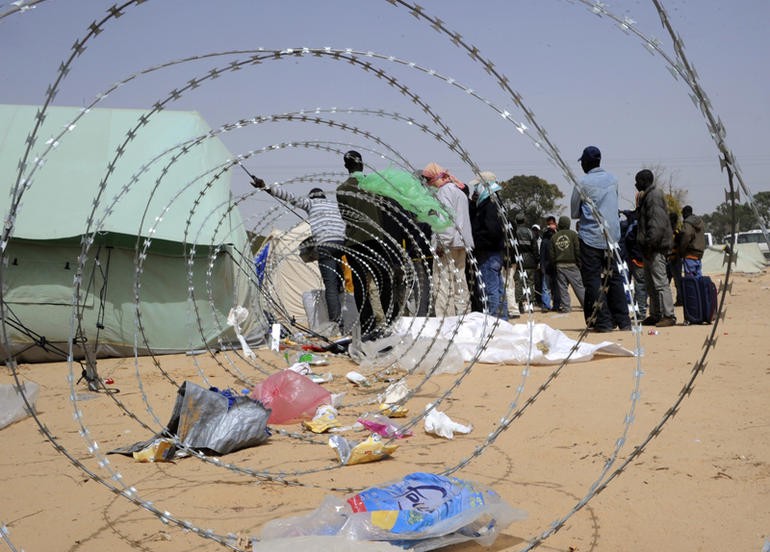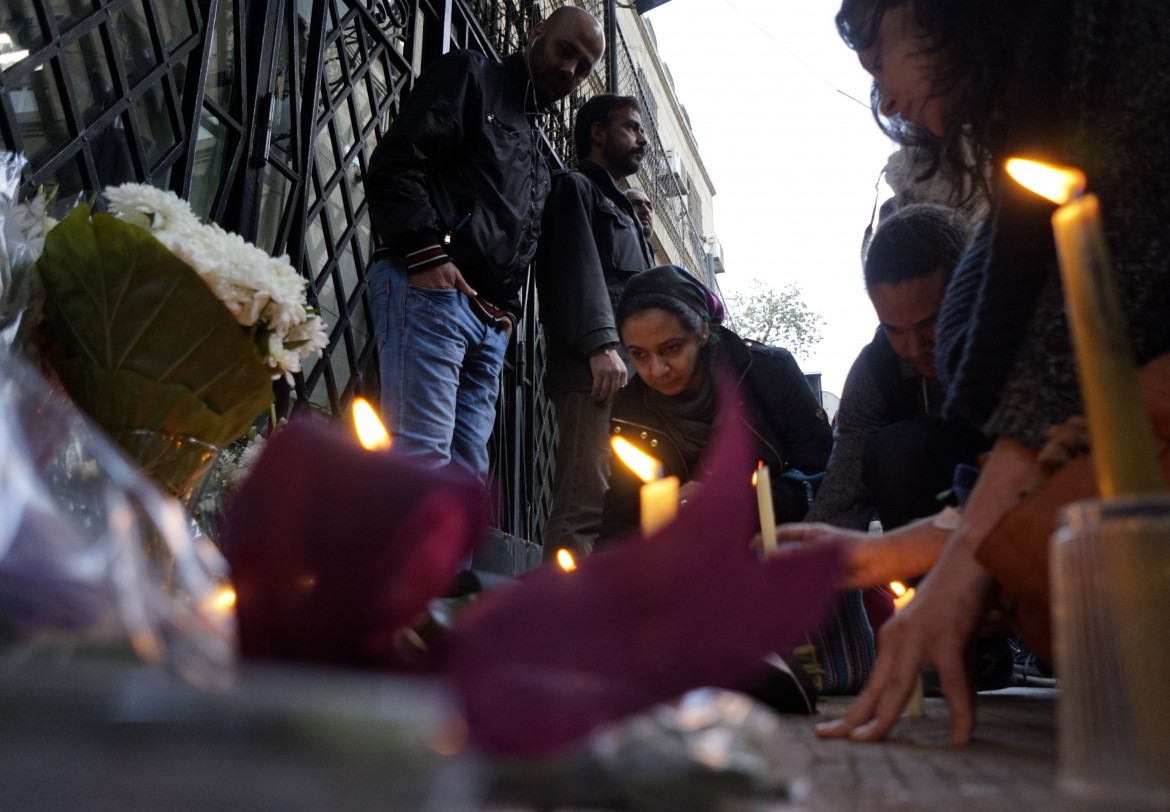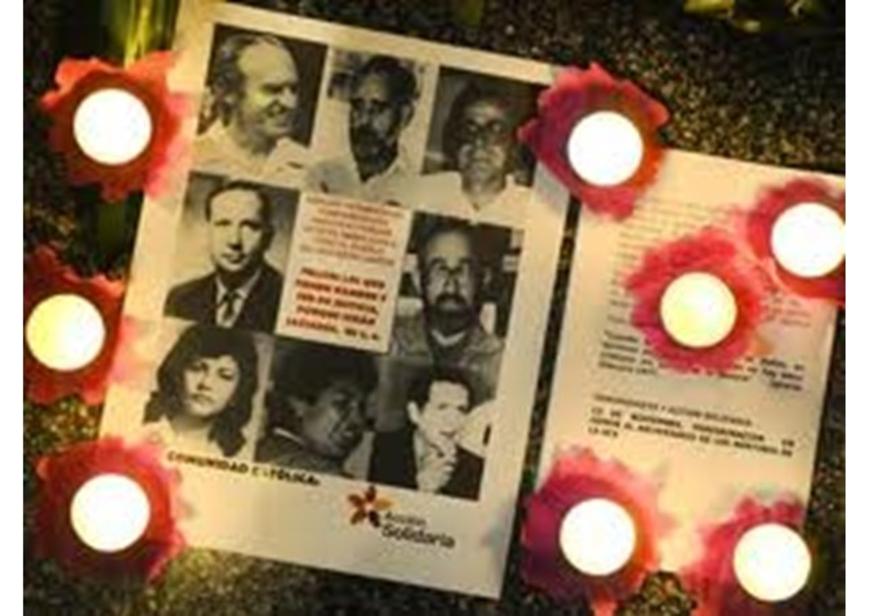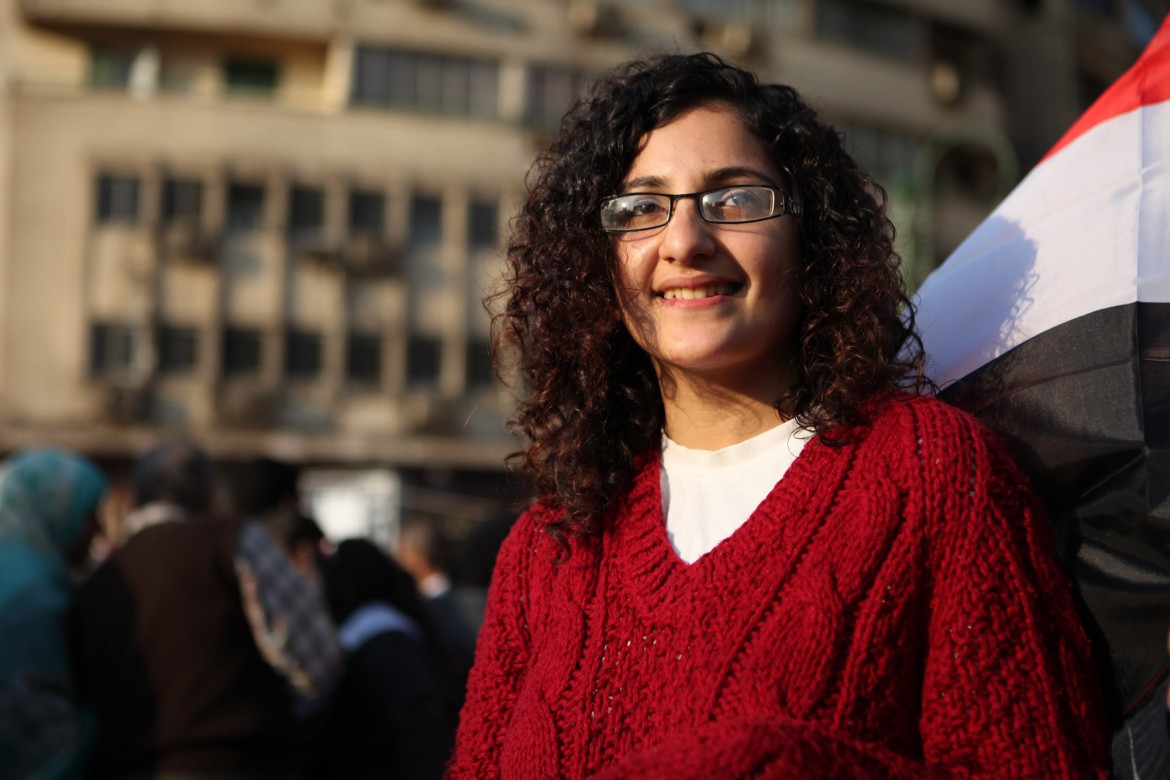Five o’clock in the morning, Sept. 1, Tunis.
A refugee named O. calls from the Choucha Camp, near the Libyan border, with news: “They are leading us to the Algerian border, handing us over to the desert. We are…” Then the call is interrupted. Probably a policeman has snatched the phone from him.
For the past week, O. had been held in a prison cell in the Tunisian suburb of Wardia for protesting along with nine other young men from Nigeria and Sudan in front of a European Union delegation. After the EU officials left, Tunisian police arrested them. Now they were being hauled into the desert. A few hours later, O. sends a text message: “The police left us at the Algerian border, near Kasserine.”
As European Union countries seal their immediate borders with fences and patrols, it has also quietly erected what amounts to a secondary barrier across large swathes of Africa. The Eunavfor military mission off the Somali coast is entering its second phase, and the EU has signed bilateral agreements with African countries to block departures from Libya. Now Tunisia has emerged as the latest pre-frontier, where officials are doing everything they can to obstruct migrants’ safe passage — even if that means trapping them in Choucha Camp for years on end, or driving them into the desert and leaving them there.
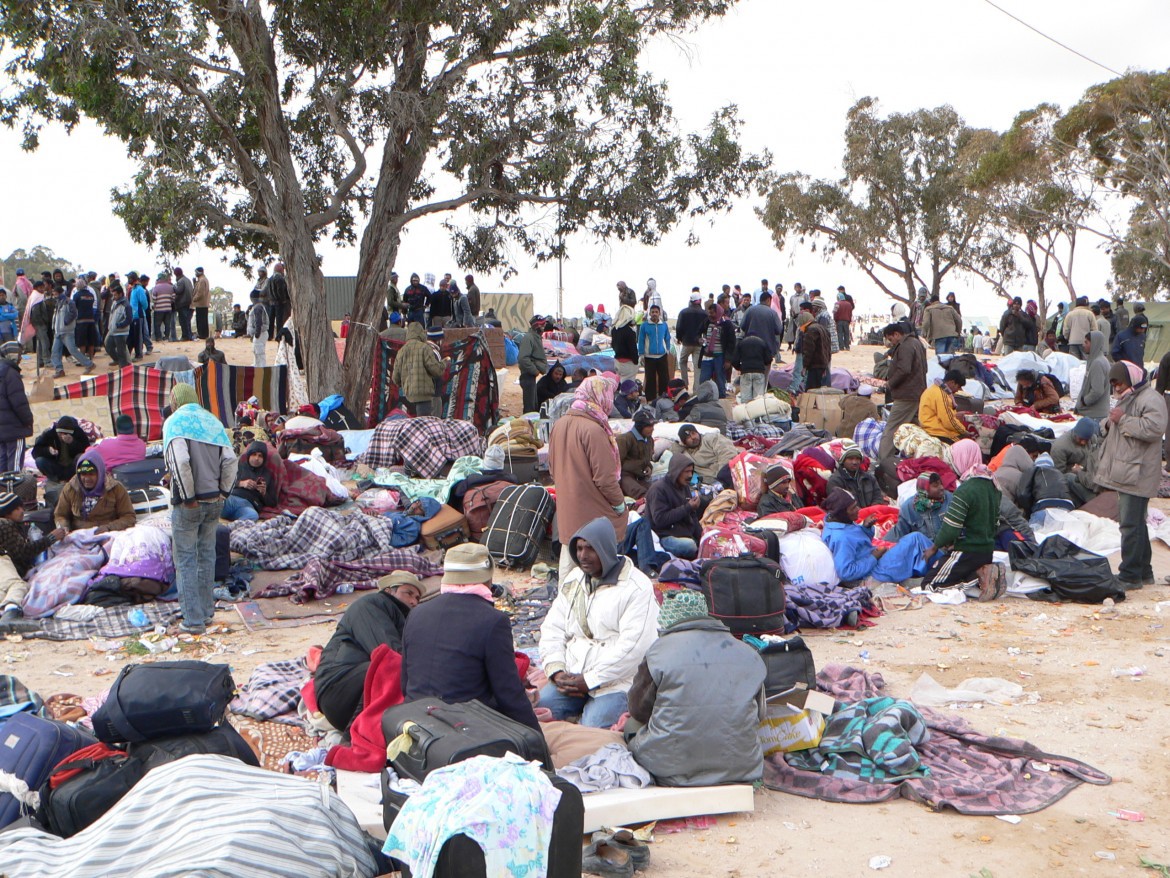
A new report, Refugees in Tunisia: between deportation detention, published by the site Storiemigranti, draws from telephone interviews with refugees detained in Wardia Prison. The report highlights the pitfalls of outsourcing immigration policies to third countries as the EU seeks to expand its pre-borders through direct agreements or by passively allowing other countries to deal with the crisis.
Although Tunisia is a signatory to the 1951 refugee convention, the country has no national laws related to asylum. This means that even people who were granted international protection by the United Nations High Commissioner for Refugees (UNCHR) may still be arrested, detained and deported, in violation of international law.
[do action=”citazione”]The European Union is outsourcing its crisis to ‘third countries’[/do]
On one hand, Tunisia has always resisted EU pressure to build camps and detention facilities. But its “management” of migrants from Libya is accomplishing Europe’s goal nonetheless: to ensure, one way or another, that these people don’t make it across the Mediterranean.
Wardia Prison, located in the Tunisian suburb of the same name, is one place that the Tunisian government uses to get rid of its asylum seekers. Few lawyers can go inside. The UNHCR and the International Organization for Migration (IOM) have access, but it doesn’t appear that they’ve ever reported what happens inside. And they have no way to know what happens to those who suddenly disappear from Wardia.
Inside the prison, the Tunisian National Guard threatens to deport them to Algeria, despite there being no agreement with the Algerian government. There, the refugees would have to finance their own plane ticket to their home countries. For O. and his nine companions, that’s exactly what happened. The UNHCR denied their asylum claim, rendering them without legal status in Tunisia. Instead of deporting them to their countries, Tunisia drove them into the desert near Algeria.
Tunisia is also denying residence permits and humanitarian protection to Syrians, whom they also send to Wardia. Even those arriving by sea end up at Wardia after being intercepted by the Tunisian Coast Guard en route to Europe from Libya. “On our boat, which left from the city of Zwhara, there were 97 Eritreans, and many like me had already obtained political asylum,” says R., an Eritrean refugee. “Off Tunisia, we were saved by the Tunisian authorities. But when we arrived in the port of Zarzis, 60 of us were taken to Wardia, where we were held for a month.”
Without any official body regulating Wardia, even basic data about the prison is unavailable. There are no figures on how many come and go. The opacity of this prison is even greater than other detention centers for migrants, which number between 10–13 around the country, according to reports submitted in 2013 to François Crepeau, the UN High Commissioner for Human Rights.
The prison walls of Wardia are not the only obstacle for refugees in Tunisia: They’re hobbled by Europe’s refusal to ensure resettlement of the few left in the Choucha Camp, the absence of asylum laws and an €80 penalty for each month a refugee stays in Tunisia.
Tunisia’s policies have remained somewhat removed from the international spotlight as large numbers of Mediterranean boat deaths dominate the headlines. By comparison, the number of refugees affected by Tunisia are small. But viewed strictly through a human rights lens, the nation’s use of secret prisons ranks Tunisia among the worst African dictatorships.
Originally published at http://ilmanifesto.it/in-tunisia-rifugiati-tra-carcere-e-deportazione/ on September 1st, 2015

